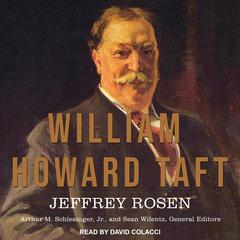 Play Audiobook Sample
Play Audiobook Sample
The Founding Fathers Audiobook
 Play Audiobook Sample
Play Audiobook Sample
Quick Stats About this Audiobook
Total Audiobook Chapters:
Longest Chapter Length:
Shortest Chapter Length:
Average Chapter Length:
Audiobooks by this Author:
Publisher Description
The Founding Fathers series includes: George Washington by James MacGregor Burns and Susan Dunn In this thoughtful and incisive biography, Burns and Dunn dissect the strengths and weaknesses of Washington's presidential leadership, from his lasting foreign and economic policies to his polarizing denunciation of political parties and his public silence about slavery. John Adams by John Patrick Diggins Perhaps no U.S. president was less suited for the practice of politics than John Adams. A gifted philosopher who helped lead the movement for American independence from its inception, Adams was unprepared for the realities of party politics that had already begun to dominate the new country before Washington left office. But in this program historian John Patrick Diggins reveals a John Adams whose reputation for snobbery and failure are wholly undeserved, and whose prescient modernism still holds valuable lessons for us as we strive to fulfill the Founding Fathers' vision of a fair republic and just society. He is, in Diggins's view, the president who comes closest to Plato's ideal of a philosopher-king. Thomas Jefferson by Joyce Appleby Few presidents embody the American spirit as fully as Thomas Jefferson. His vision and unrivaled political imagination account for the almost utopian zeal of his two administrations. However, contradictions in his populism make Jefferson the most controversial of presidents: he spoke of inalienable human rights, but he taught his daughters that women were created for men's pleasure, and he believed that whites and blacks could never coexist peacefully in freedom. Jefferson described his election to the presidency as a second American Revolution. For the first time, historian Joyce Appleby rigorously explores this claim. She argues that our third president did, in fact, radically transform the political landscape of the United States by limiting the power of the government and eradicating the elitist practices inherited from the colonial era. James Madison by Gary Wills The eternal conundrum about James Madison—a key framer of the U.S. Constitution, a formidable political figure, and a man of tremendous intellect and foresight—is why, when he became chief executive, did he steer the ship of state with such an unsteady hand? Why was this man so lackluster and ineffectual in his tenure as president? Renowned historian Garry Wills outlines the confluence of unfortunate circumstance, misplaced temperament, and outright poor judgment that bogged down Madison's presidency.
Download and start listening now!
“Richard Rohan treats the narration dramatically, with voices for George Washington and John Adams, while Ira Claffey takes a more professorial tone for Thomas Jefferson and James Madison. Both read with clarity and make the material compelling.
— AudioFile
Quotes
-
A publishing milestone...Schlesinger, a master craftsman, is imposing his high standards on these books. Hail to the chief. It's a wonderful series.
— Chicago Sun Times
Awards
-
Among shortlisted titles for Audie Award Finalist, 2009
The Founding Fathers Listener Reviews
-
" Exceptional detail, fascinating but dry... "
— Mclane, 8/14/2013
About the Authors
Garry James Wills is a prolific Pulitzer Prize-winning American author, journalist, and historian, specializing in American history, politics, and religion, especially the history of the Roman Catholic Church. Wills has written nearly forty books and since 1973 and has been a frequent reviewer for the New York Review of Books. He became a faculty member of the history department at Northwestern University in 1980, where he is currently an Emeritus Professor of History.
Arthur Meier Schlesinger, Jr., (1917–2007) was an American historian, social critic, and public intellectual. Specializing in American history, much of Schlesinger’s work explored the history of twentieth-century American liberalism. In particular, his work focused on leaders such as Harry Truman, Franklin D. Roosevelt, John F. Kennedy, and Robert F. Kennedy. A Pulitzer Prize winner, Schlesinger served as special assistant and “court historian” to President Kennedy from 1961 to 1963. He wrote a detailed account of the Kennedy Administration, from the transition period to the president’s state funeral, titled A Thousand Days. In 1968, Schlesinger actively supported the presidential campaign of Senator Robert F. Kennedy, which ended with Kennedy’s assassination in Los Angeles. Schlesinger wrote the popular biography Robert Kennedy and His Times several years later. He later popularized the term “imperial presidency” during the Nixon administration in his book of the same name. In 1967, he was awarded the American Academy of Arts and Letters Gold Medal for History.
Xe Sands has more than a decade of experience bringing stories to life through narration, performance, and visual art, including recordings of the Nightwalkers series from Jaquelyn Frank. She has received several honors, including AudioFile Earphones Awards and a coveted Audie Award, and she was named Favorite Debut Romance Narrator of 2011 in the Romance Audiobooks poll.
About Richard Rohan
Richard Rohan is a stage, film, and voice-over actor who has narrated hundreds of audiobooks over the last decade, in every genre. He is particularly proud of his work as director and performer on the acclaimed Space Fantasy audio drama series Deathstalker.













